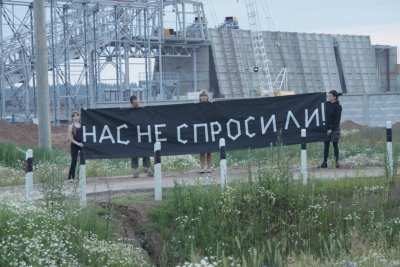“During 2020, several leaders of Ecohome were arrested for fictional reasons. Usually for participation at unauthorized demonstrations, even when the person was evidently in a different town. Their computers and phones were confiscated. Later, in July 2021, twenty six environmental non-governmental organizations were forcibly liquidated, their offices sealed and members searched,” explains Sergey Magonov, lawyer of recently banned leading Belarusian environmental NGO Ecohome (6), (7). “Activists are under extreme pressure. Seeking justice at courts in the country does not make any sense, but at the same time, launching of existing international mechanisms takes months or years,” Magonov adds.
The year 2020 showed the highest number of environmental and land defenders killed ever; 227 people worldwide (8). Although most of them were in Latin America, in 2019 murders also occurred in Kazakhstan and Romania. The global pandemic, accompanied by restrictions on civil freedoms as a result of the coronavirus measures, accelerated negative trends – a recent report spotlights 15 cases from Europe, the Caucasus, and Central Asia in which environmental rights have been violated (9).
“Aarhus Convention is celebrating its twentieth anniversary. At the time of its signing, many hoped that the safe space would expand and the right to live in a healthy environment would deepen over time. Unfortunately, today we don’t live in a more open and just world - on the contrary, the area of freedom is shrinking in many countries,” says Martin Skalsky, chairman of NGO Arnika, based in Czech Republic. “Cases from our region show that in order for the Aarhus Convention to continue to be an inspiration and guarantor of fundamental rights, it urgently needs a mechanism to protect activists from unjust prosecution,” Skalsky adds.
The representatives of the UNECE states are meeting in Geneva from 18 till 22 October to evaluate the last 4-years period, and decide on further steps in promoting environmental democracy in the region. The Rapid Response Mechanism is expected as the most significant improvement.
Further reading:
[1] The Aarhus Convention, nicknamed the Convention on Environmental democracy, entered into force on 30 October 2001. Its signatories are the countries of Europe and the former Soviet Union and the European Union as a party. Recently, Guinea Bissau became the first party from Africa. Based on the example of the Aarhus, the countries of Latin America recently adopted a similar Escazu Convention. Aarhus Convention guarantees the right for environmental information, public participation in decision making, access to justice, and protection of the defenders of the environment from persecution. More on Aarhus Convention
[2] ENG 10/2021 Seventh Session of the Parties to the Aarhus Convention (UNECE)
[3] ENG The presentations from the side event of the non-governmental organizations on persecutions of environmental defenders (Stop Persecution)
[4] Creation of the new Rapid Response Mechanism was adopted at the Sixth Meeting of the Parties to the Aarhus Convention (Montenegro, 2017). Since then, the draft has been developed for the decision of the states. The draft is available for download here.
[5] ENG Cases of persecutions of environmental activists in Europe and former Soviet Union (Stop Persecution)
[6] ENG 30/8/2021 After political opposition and the media, Belarusian dictator is shutting down the NGOs (Stop Persecution)
[7] ENG Chronology of liquidation of the non-governmental organization Ecohome (Ecohome)
[8] ENG 28/10/2020 The protection of environmental activists is getting closer. Governments are negotiating on a new international mechanism (Stop Persecution)
[9] ENG 12/10/2020 Environmental destruction in times of coronavirus: a new study brings cases from Europe, the Caucasus, and Central Asia to light (Stop Persecution)


